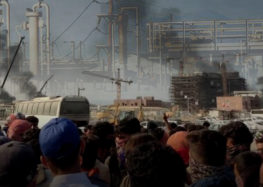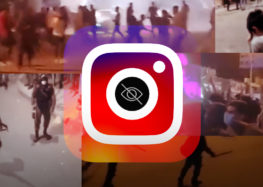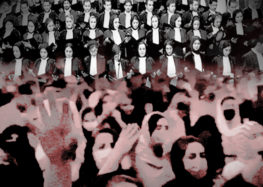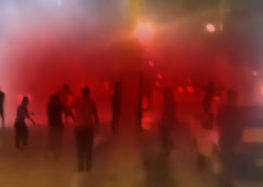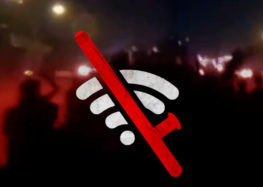Hundreds Arrested as Anger Over State Discrimination Against Iranian Arabs Spills Into the Streets
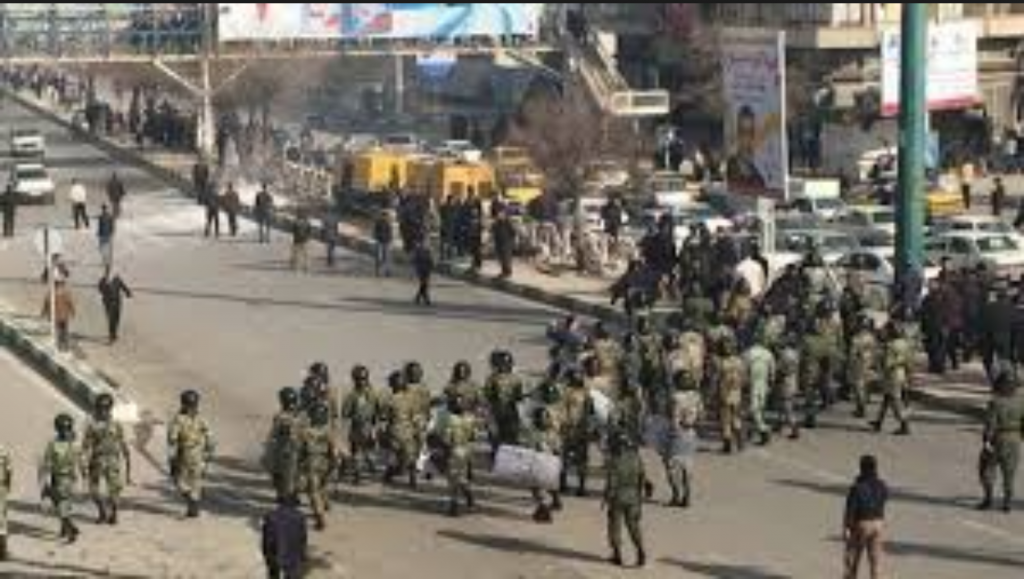
Ahvaz Friday Prayer Leader Calls For Apology From State TV Over Discriminatory Children’s Show
At least 200 people were arrested after a week of demonstrations in Iran’s mainly Arab-populated Khuzestan Province. On April 6, 2018, the Friday prayer leader of the flashpoint city of Ahvaz requested an apology from Iranian state TV, which inadvertently ignited the protests.
The protests began after the state-run Islamic Republic of Iran Broadcasting (IRIB) service aired a children’s program on March 22 excluding Arabs from a map ostensibly displaying the geographic locations of the country’s different ethnic minorities.
“It’s not just this TV program,” political and human rights activist Karim Dahimi told the Center for Human Rights in Iran (CHRI) on April 4. “Anger has been piling up in Khuzestan due to many insulting things and various oppressive acts and it manifested in protests against this program.”
On April 6, Friday prayer leader Ayatollah Mohsen Heydari said IRIB owes the people of Khuzestan an apology.
“Recently, the Arab peoples of Khuzestan were insulted by a program shown on IRIB’s Channel 2, which was condemned by all the senior officials and personalities, and therefore we ask the head of the IRIB to apologize to the people of Khuzestan, especially the Arabs,” he said.
On March 20, a different Friday prayer leader in the city, Abolhassan Hassanzadeh, said that “IRIB’s mistake was by no means deliberate” and cautioned people to be aware of “seditious enemy plots” to foment discord among ethnic minorities in Iran.
In the popular show, the child host of “Kolah Ghermezi” (Red Hatter) places dolls ostensibly representing the country’s different ethnic minorities on different locations on the map. All the dolls were dressed in the traditional clothing of the corresponding ethnicity except for the doll chosen for Khuzestan.
“Eliminating Arabs from this map shows that the state of Iran is trying to culturally eliminate them,” added Dahimi, who is based in Ahvaz. “The people were protesting against the Islamic Republic of Iran’s anti-Arab ideology, which has resulted in discrimination, poverty and deprivation of the rights of the Arab people of this region.”
Since March 28, Ahvaz, the capital of Khuzestan, and other cities in the province have seen protests on an almost daily basis. Police forces have responded by using tear gas to break up the demonstrations by force.
Initially, the protesters were demanding an apology from IRIB but after the police began arresting people the slogans morphed into calls for the release of the detainees and condemnations of police brutality.
“Police and security forces have been brought in from neighboring provinces to suppress the protests and create a climate of fear,” Dahimi told CHRI.
IRIB has so far refused to apologize for the controversial episode on Kolah Ghermezi. But the show’s producer, Mohammad Zarean, said in an online interview on March 28 that the absence of an Arab doll was unintentional.
“Some Iranian ethnicities are complaining that they were not shown on this program. What is your answer?” interviewer Ghalam-e Mandegar asked Zarean.
Zarean responded: “That is certainly not the case. In this program, we used dolls with dresses in different colors and forms that could represent our compatriots… But because of time constraints that occurred during the New Year [March 2018] programming, there was a slight change and we put the prepared dolls on the map and intended to complete it in the following days until all the Iranian ethnicities were on the map… There are other ethnic groups that have not yet been added to this map and of course, they will be by the end of the series.”


